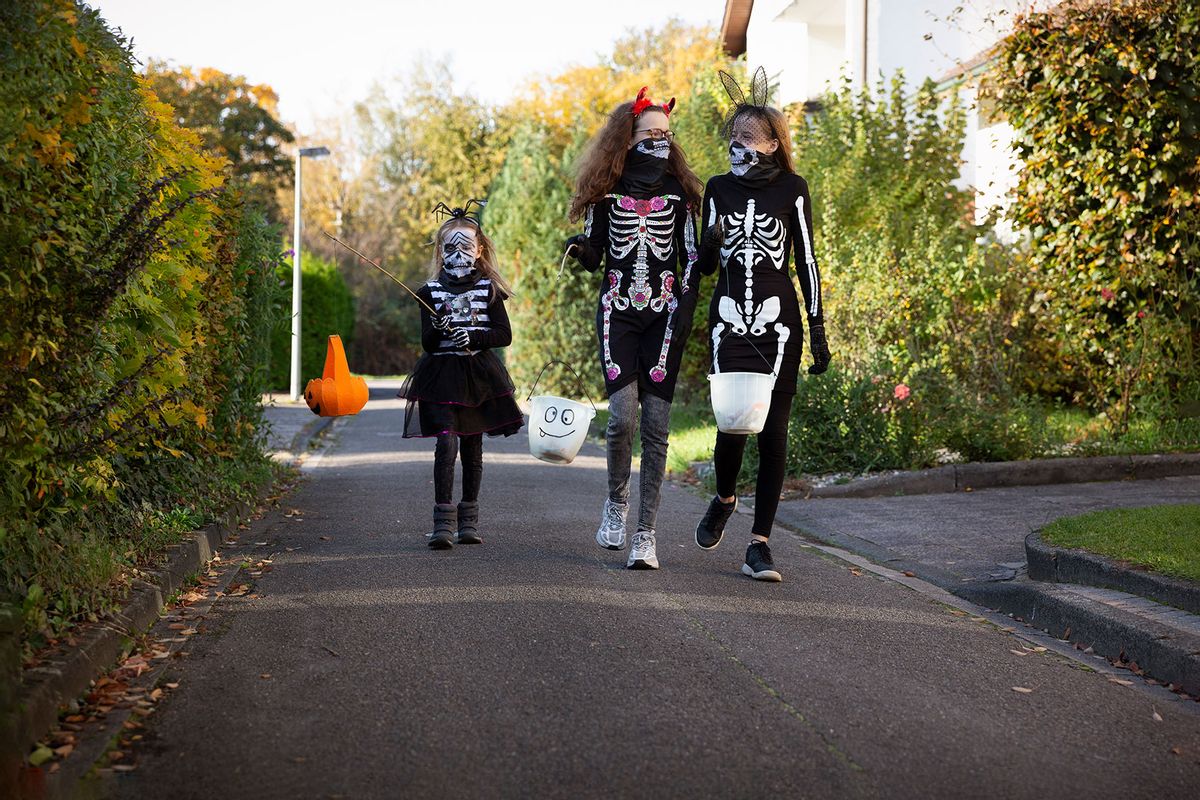Teen O’Ween: Let older kids trick or treat

I love my home, but around summer road improvements, elections and major holidays, the debates on the local social media pages get heated. One flaming thread that forever burns in my mind involves complaints about families from rural areas driving into the small but centralized town for the good and plentiful candy on Halloween. I nurse a controversial opinion that certainly would get me banned from the neighborhood Facebook page, or at least, some side-eyes at the grocery store: if someone shows up at your house on trick or treat night, no matter where they came from, what they look like, or how old they are, give them candy.
On YouTube, a video on how to “shame” teens who try to trick or treat at your house has over 18,000 views. Daytime talk program “The Real” had a show debating an age limit for Halloween, which some cities have actually passed laws about. Chesapeake, Virginia has a law on the books that will charge children over 14 with a Class 4 misdemeanor for trick or treating, while multiple other cities in Virginia prohibit trick-or-treating for kids above the age of 12. Some towns forbid the wearing of Halloween masks in public above a certain age while other have instituted curfews for teenagers on Halloween nights.
Also at work with Halloween laws is a confused view of what childhood is.
The issue here is that we don’t trust teens, and certainly judgment is an area where adolescents are sometimes lacking, through no fault of their own. Adolescents’ brains are still developing and they don’t have a lot of lived experience to always make good decisions. At the same time, they want more independence and we try to give it to them when we can: I trick or treated alone with friends (no parents) when I was a teen, and my tween asked to do the same this year (I said no, not yet). Peer pressure is notoriously never the wellspring of great ideas — it’s why more and more states are passing laws restricting new teen drivers from having peers in the car, fewer distractions, fewer opportunities for drinking and texting.
But also at work with Halloween laws is a confused view of what childhood is. Not wanting teens to egg your car or toilet-paper your house is understandable, but not wanting teens to spoil your younger kids’ fun with their . . . slightly older-ness smacks of elitism. Parents writes, “Parents of young children may worry that their little ones’ magical night might be ruined by rambunctious teenagers.” Who is Halloween for: you the grownup or the kids? All kids, because teens still are that.
Ascribing teenagers, a stage of development that is still a part of childhood, to be older than they are leads to a host of other problems. About 250,000 teens per year are tried in the criminal justice system as adults, despite their youth, putting them at great risk of victimization from an adult prison population — and making them 36 times more likely to die by suicide. Children given adult motives can lead to grooming and victim-blaming when a child is the survivor of sexual abuse perpetrated by an actual adult.
To be a kid still is especially important for the children of now.
Kids are also not a monolith. As their developmental milestones are not the same, they also don’t all get “too old” for something at the same magical age. My kid started ordering for himself at a restaurant at age 5 — and eating what he asked for. He’s always been adventurous when it comes to food. At the same time, I slept with a night light well into my teens, and some adolescents never outgrow the beloved stories of their youth.
Allowing teens to trick or treat, giving them candy when they ask for it at your door, permits them to have fun without mischief, to run around in the dark for one night without fear. To be a kid still is especially important for the children of now, this moment, children who were robbed of and who continue to be denied central aspects of childhood, thanks to the pandemic, like going to school, being with their friends, even getting to play on playgrounds or go to movies or the mall. Teens of today lost at least two Halloweens to COVID, maybe more.
Want a daily wrap-up of all the news and commentary Salon has to offer? Subscribe to our morning newsletter, Crash Course.
From deadly viruses to climate chaos to school shootings, it’s a horribly difficult time to be a person, but especially a young person with little to no power. Kids should be allowed to hold onto their childhood, if they want to, a little bit longer without conditions. Some kids have difficulty choosing among types of candy in a bowl. Some kids can’t say “thank you” or “trick or treat” because they’re non-speaking. Some kids might not have a costume because of their family’s financial situation. And some kids might be taller or older. You’re not the Halloween police. Leave the porch light off or let them treat.
Read more
about kids and Halloween


